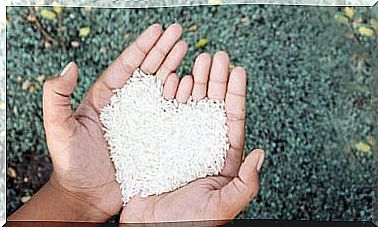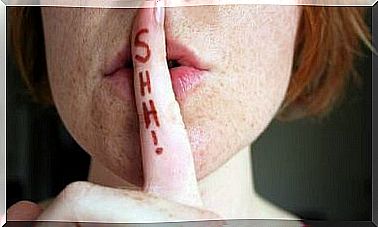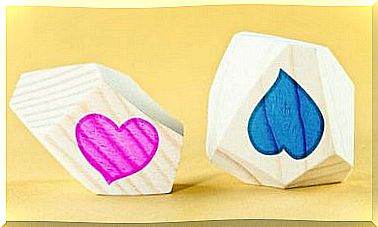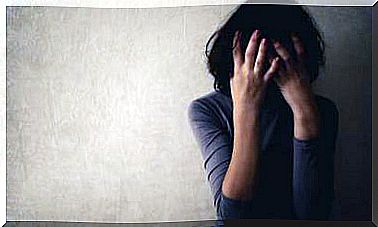Hives And Loneliness: What Relationship?

The skin is an organ rich in nerve endings in all its parts; we are therefore talking about an organ directly connected to the nervous system. There is therefore a very close link between emotions, thoughts and skin. Today we talk specifically about the relationship between hives and loneliness.
The relationship between mind and skin is so close that it has given rise to a sub-specialty called psychodermatology. Another sub-specialty, psychoneuroimmunology, also deals with the interaction between the psyche, nervous system, immune system and skin. Experts in these fields and psychoanalysts have found a relationship between hives and loneliness.
From the psychoanalytic point of view, the skin and touch are the referents par excellence of emotional proximity or distance. The human being establishes the first emotional contact with the world through the skin. Throughout life, the skin will be a barrier and a point of contact of a symbolic nature.
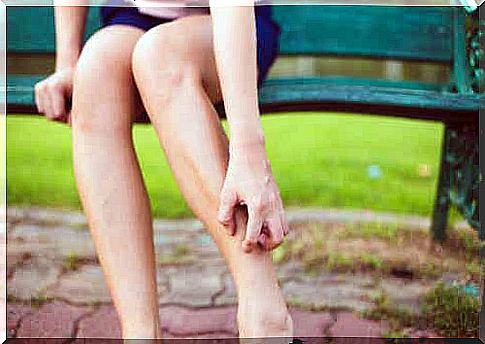
A revealing experiment
Dr. Nicolás Noriega is an allergist and immunologist with a master’s degree in psychoneuroimmunoendocrinology. He carries on his business in Villa María (Córdoba, Argentina) where he conducted a study to establish the links between psychological disorders and allergies, including hives.
He followed 82 patients with different types of allergies for a year. He chose the candidates on two criteria: people who did not take medicines and people who did not follow psychological therapy.
At the end of the study, Dr. Noriega found that 42% of the subjects suffered from rhinosinusitis, 30% from urticaria and 28% from dermatitis. The remaining percentage had other allergies.
By conducting a series of tests on the patients’ emotional state, it was found that 95% had two or more symptoms related to anxiety, often associated with depression.
After this experiment and thanks to his clinical experience, Dr. Noriega came to the conclusion that “urticaria is one of the conditions in which stress, anxiety and emotional problems acquire an exceptional importance and, in some cases, constitute their single cause “.
Hives and loneliness
Urticaria is a disease characterized by the appearance of red spots on the skin. It is considered an allergic reaction that usually occurs occasionally. In other words, it arises suddenly, disappears by itself and only rarely becomes chronic.
The first to mention the relationship between hives and loneliness were the Freudian psychoanalysts. Freud himself faced the problem, but it was Didier Anzieu who explored the subject.
Anzieu argued that skin reactions have to do with symbolizing closeness or distance in contact with emotionally significant people.
In this sense, allergic skin reactions, such as atopic dermatitis, eczema and urticaria, would represent a conflict in terms of proximity-distance.
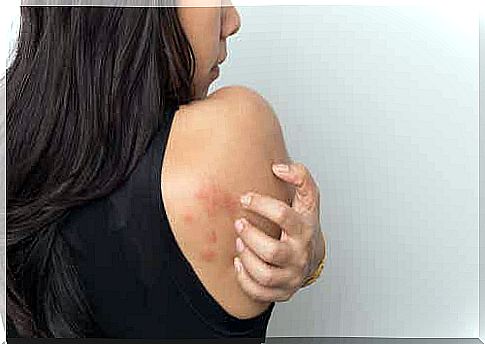
The messages behind hives
Along the same lines, expert Joman Romero, argues that hives and loneliness go hand in hand and express the following situations:
- Conflicts of separation. The subject feels that someone is “ripping off” a person.
- Love triangles. The presence of a third person prevents the desired contact with someone you love.
- Separation from oneself. Feeling detached from your own desires. The impossibility of realizing one’s desires and making them become concrete actions, instead of remaining repressed aspirations.
- Loneliness, strictly speaking. What is expressed is the regret of having been deprived of contact with people or with a particular person. Hives and loneliness, in their many facets, go hand in hand.
- Unconscious refusal of contact. Hives also tell us that we don’t want to have contact with something or someone because we despise them. Such contact is perceived as dishonorable.
- Feeling of being mistreated. The marks on the skin left by hives are similar to those of a blow. It can, therefore, be the visible manifestation of perceived abuse.
Romero says people who suffer from hives are typically insecure and maintain a passive attitude in relationships with those they love.
Likewise, they tend to feel hurt in love affairs and find it difficult to identify what really irritates them. Hives and loneliness go hand in hand as the skin reveals emotional difficulties.




